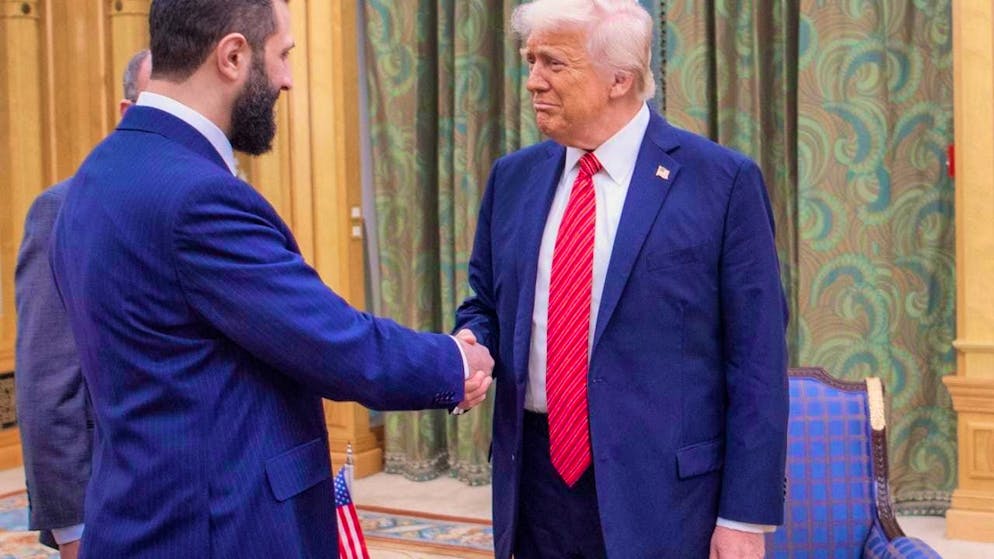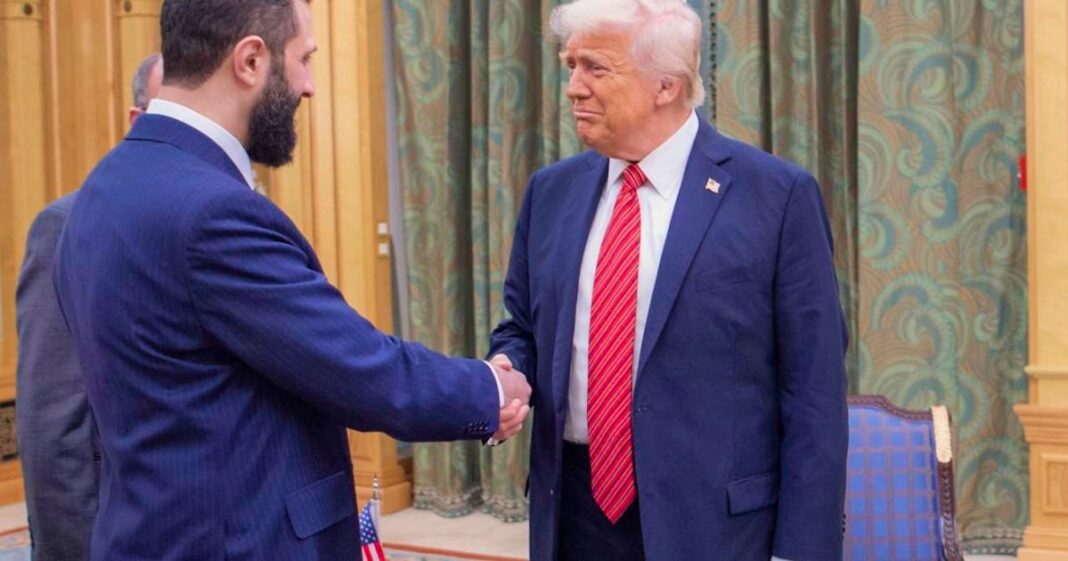
Keystone
A significant diplomatic shift has taken place as the United States has lifted sanctions against Syrian interim President Ahmed al-Sharaa just days before his historic visit to the White House. This development marks a potential turning point for Syria as al-Sharaa, a pivotal figure in the new leadership, prepares to meet with President Donald Trump amidst a backdrop of changing political landscapes.
The announcement from the U.S. State Department confirmed that al-Sharaa would be removed from the terrorism sanctions list, a designation he had held since 2013. The lifting of sanctions extends to Syria’s Interior Minister, Anas Hasan Khattab, signaling a thaw in relations and a recognition of the progress made in Syria following years of conflict under Bashar al-Assad’s regime. With this decision, the U.S. aims to support the interim government’s efforts to stabilize the region.
The Path to Recovery
Al-Sharaa’s interim presidency is marked by significant responsibilities, including the search for missing Americans and combating terrorism and drug trafficking. His leadership is pivotal as Syria embarks on a journey towards recovery and reconstruction. The U.S. sees these efforts as vital in establishing security and stability, helping to reshape the future of the war-torn country.
Just when the U.S. diplomatic reception of a Syrian leader seemed improbable, the meeting scheduled with President Trump highlights a significant shift in the U.S.’s approach to Syria. It’s notable that since Syria’s independence in 1946, no president from the country has been received in Washington for an official state visit. This forthcoming meeting could signal a new chapter in Syrian-American relations, wherein dialogue and cooperation may replace years of estrangement.
A Broader International Context
In tandem with the U.S. actions, the UN Security Council recently lifted sanctions against al-Sharaa and Khattab. A resolution introduced by the U.S. received overwhelming support, with 14 votes in favor, while China abstained. This international consensus reflects a shared desire among many nations to foster a political resolution in Syria and to stabilize the region after Assad’s ousting last year.
The lifting of sanctions was motivated by the need to encourage a new political beginning in Syria, freeing al-Sharaa from past associations with extremist groups. This acknowledgment signifies a turning of the page, as the global community is slowly recognizing the interim government’s potential to lead the country towards a more stable future.



